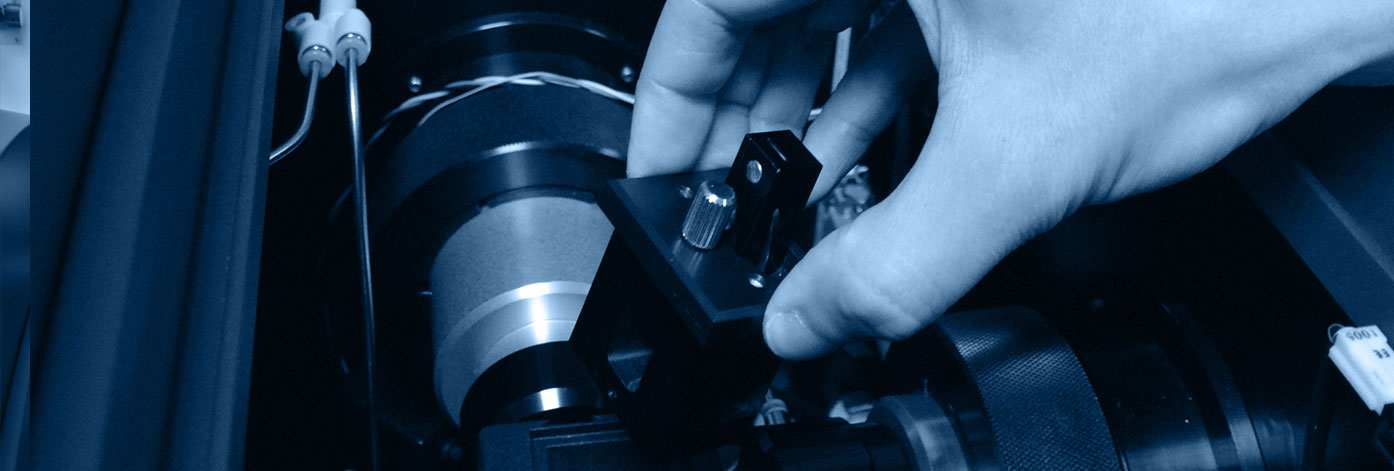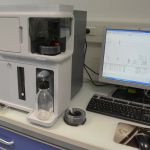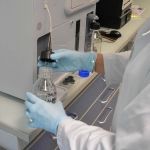
Facility
Biophysics & Structural Biology (B2S)
SPR
Specifications
Biacore technology allows to study molecular interactions in real time. The apparatus operates on the principle of a biosensor that uses surface plasmon resonance (SPR) to detect mass variations on the surface of a sensor chip on which one of the molecules (the ligand) is immobilized. The other molecule (the analyte) is injected by a microfluidic system into a continuous flow of buffer on the surface of the sensor chip. Monitoring the SPR signal variation as a function of time (sensorgram) for several analyte concentrations allows to determine the kinetic constants of association and dissociation, and to deduce the value of the affinity constant. This technology also allows to measure the concentration of functional molecules as well as the interaction stoichiometry.
It's used to the characterize molecular interactions involving small molecules and all classes of biological macromolecules (proteins, polysaccharides, lipids and nucleic acids).
It's used to the characterize molecular interactions involving small molecules and all classes of biological macromolecules (proteins, polysaccharides, lipids and nucleic acids).
Type
Surface Plasmon Resonance
Reference
Biacore X100 GE Healthcare
pf-biophysique
- Request form220.73 KB
- Terms and conditions89.31 KB
Analyzes can be performed in service mode or device provision mode after initial training. Contact the person in charge using the Request form for any information.
Canabady-Rochelle LLS, Selmeczi K, Collin S, Pasc A, Muhr L, Boschi-Muller S. SPR screening of metal chelating peptides in a hydrolysate for their antioxidant properties. Food Chem. 2018 Jan 15 ; 239:478-485.
 10.1016/j.foodchem.2017.06.116 ,
10.1016/j.foodchem.2017.06.116 ,  28873593 ,
28873593 ,  HAL-01620268
HAL-01620268 Carrasco K, Boufenzer A, Jolly L, Le Cordier H, Wang G, Heck AJ, Cerwenka A, Vinolo E, Nazabal A, Kriznik A, Launay P, Gibot S, Derive M. TREM-1 multimerization is essential for its activation on monocytes and neutrophils. Cell Mol Immunol. 2018 Mar 22.
 10.1038/s41423-018-0003-5 ,
10.1038/s41423-018-0003-5 ,  29568119 ,
29568119 ,  HAL-01945617
HAL-01945617







